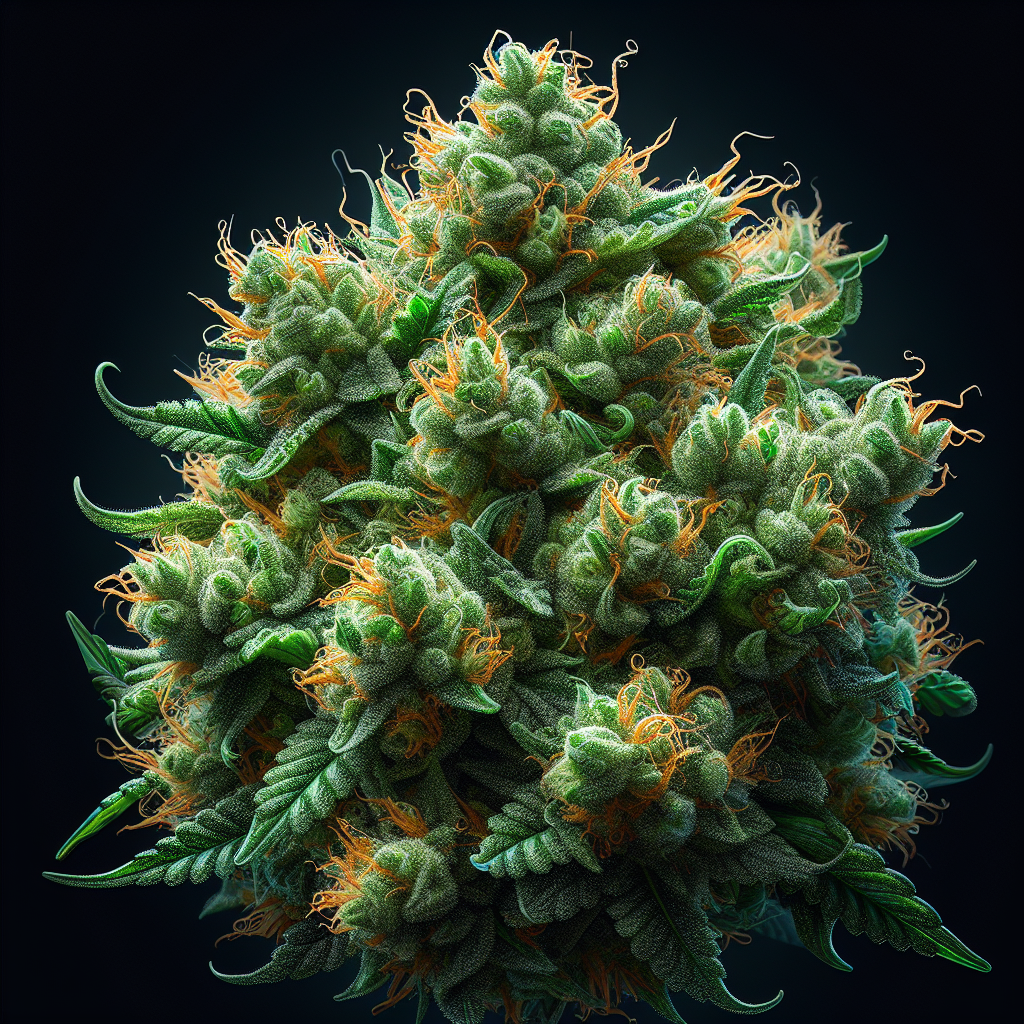Cannabinoids and Cognition: Exploring the Neuroprotective Benefits of Cannabis for Brain Health
Cannabis, a complex plant with a rich history, has recently gained renewed attention in the realm of scientific research, particularly concerning its potential role in brain health and cognitive functioning. As societal perceptions of cannabis continue to evolve, the understanding of its active compounds, known as cannabinoids, has led to groundbreaking discoveries on how these substances may protect and enhance brain health. This comprehensive exploration aims to dive deep into the neuroprotective benefits of cannabis, shedding light on its potential applications in cognitive enhancement and protection against neurological diseases.
What are Cannabinoids?
Cannabinoids are naturally occurring compounds found in the cannabis plant. They interact with the endocannabinoid system (ECS), a complex cell-signaling system that plays an essential role in regulating various physiological processes, including mood, memory, pain, and inflammation. The two most prominent cannabinoids are:
-
Tetrahydrocannabinol (THC): The psychoactive compound responsible for the "high" associated with cannabis use. THC has also been shown to promote neurogenesis and provide neuroprotective effects.
- Cannabidiol (CBD): A non-psychoactive compound that is known for its therapeutic potential, including its ability to reduce anxiety, alleviate seizure disorders, and potentially protect brain cells from damage.
In addition to THC and CBD, there are over a hundred other cannabinoids present in cannabis, each contributing to the plant’s effects and benefits.
The Endocannabinoid System and Its Role in Brain Health
The endocannabinoid system comprises a network of receptors (CB1 and CB2), endogenous cannabinoids (endocannabinoids), and metabolic enzymes that work together to maintain homeostasis in the body. The brain expresses a high density of CB1 receptors, which play a crucial role in modulating neurotransmitter release, overall cognitive function, and neuroprotection.
How Cannabinoids Influence Cognitive Functioning
Research has revealed several ways in which cannabinoids may positively affect cognitive functioning:
-
Neurogenesis: The process of generating new neurons, particularly in the hippocampus, is essential for learning and memory. Studies have shown that cannabinoids can stimulate neurogenesis, suggesting that they may help improve cognitive function and memory.
-
Memory Protection: Cannabinoids have demonstrated potential in protecting against cognitive decline caused by neurodegenerative diseases such as Alzheimer’s and Parkinson’s. By reducing inflammation and oxidative stress in the brain, cannabinoids may mitigate memory impairment associated with these conditions.
-
Reduction of Anxiety and Stress: Anxiety and stress are known to negatively impact cognitive performance. CBD, in particular, has been extensively researched for its anxiolytic properties, which can promote better cognitive functioning by reducing the levels of stress-related hormones and enhancing emotional balance.
-
Improvement of Synaptic Plasticity: Cannabinoids may enhance synaptic plasticity—the brain’s ability to change and adapt in response to experience—which is critical for learning and memory retention. Enhanced synaptic plasticity may lead to improved cognitive function and resilience against cognitive decline.
- Neuroprotection: Cannabinoids exhibit antioxidant and anti-inflammatory properties, which can protect brain cells from damage caused by free radicals and chronic inflammation. This neuroprotective effect is vital for maintaining cognitive health and preventing neurodegenerative diseases.
Cannabinoids and Aging: A Promising Avenue in Neuroprotection
As we age, our brains undergo various changes that may lead to cognitive decline. Research suggests that cannabinoids could play a promising role in combatting age-related cognitive decline:
1. Preservation of Cognitive Function:
Studies involving older adults have indicated that regular, moderate use of cannabis may be linked to a lower incidence of cognitive decline and dementia. The anti-inflammatory properties of cannabinoids can help alleviate the negative impact of aging on the brain.
2. Mood Regulation:
Mood disorders such as depression can accelerate cognitive decline in older individuals. Cannabinoids, particularly CBD, can improve mood and promote emotional well-being, potentially impacting cognition positively.
3. Pain Management:
Chronic pain is a common issue among the elderly, often leading to reduced physical activity and cognitive engagement. By alleviating pain, cannabinoids may help older adults maintain an active lifestyle, which is essential for cognitive health.
Cannabinoids, Neurodegenerative Diseases, and Cognition
1. Alzheimer’s Disease:
Research has shown that cannabinoids might reduce the buildup of beta-amyloid plaques in the brains of individuals with Alzheimer’s, a hallmark of the disease. By modulating the ECS, cannabinoids can help manage symptoms and potentially slow disease progression.
2. Parkinson’s Disease:
Cannabinoids may help improve motor function and reduce anxiety and tremors in patients with Parkinson’s disease. The neuroprotective properties of cannabinoids can also play a role in reducing neuroinflammation associated with Parkinson’s.
3. Multiple Sclerosis (MS):
Cannabinoids have shown promise in reducing muscle spasms, pain, and overall disability in MS patients. The anti-inflammatory effects of cannabinoids can help protect neurons from the damaging effects of the disease, thereby preserving cognitive function.
4. Traumatic Brain Injury (TBI):
Cannabinoids have been found to mitigate the effects of traumatic brain injury by reducing neuroinflammation and cell death. This neuroprotective effect holds promise for improving outcomes in TBI patients and promoting recovery.
Validating Cannabinoid Therapeutics: Emerging Research
As the scientific community continues to explore the benefits of cannabinoids on cognition and brain health, a growing body of research supports their potential therapeutic applications. Notably, clinical trials and studies have demonstrated the efficacy of cannabinoids in various neurological contexts.
-
CBD in Epilepsy: The FDA-approved CBD medication Epidiolex has shown substantial success in reducing seizures in patients with certain epilepsy disorders. This has paved the way for ongoing research into CBD’s broader neuroprotective effects.
-
Cannabinoids for PTSD: Studies have indicated that cannabinoids may play a crucial role in the treatment of PTSD by modulating emotional responses to traumatic memories. This can lead to improved cognitive processing of memories and emotional regulation.
- Cognitive Enhancement in Healthy Individuals: Preliminary studies suggest that cannabinoids may enhance cognitive flexibility, creativity, and problem-solving skills in healthy adults, potentially offering novel approaches to cognitive enhancement without the adverse effects associated with traditional stimulants.
How to Incorporate Cannabinoids for Brain Health
For those interested in harnessing the cognitive and neuroprotective benefits of cannabinoids, considering the following options may be beneficial:
1. CBD Oil:
CBD oil is widely available and can be ingested sublingually or added to food. Starting with a low dosage and gradually increasing is advisable to find the optimal amount for individual needs.
2. THC/CBD Flower:
Consuming whole cannabis flowers with a balanced THC/CBD ratio may promote a range of cognitive benefits. Be mindful of local regulations and personal tolerance to THC.
3. Edibles:
Cannabis-infused edibles offer an alternative ingestion method, delivering cannabinoids in a controlled manner. However, onset times can be longer, so patience is essential.
4. Topicals:
While primarily used for localized effects, some topical products containing cannabinoids may aid in reducing inflammation and pain, which can indirectly support overall brain health by promoting well-being.
5. Consulting Healthcare Professionals:
Before incorporating cannabinoids into your routine, consulting with a healthcare professional experienced in cannabinoid therapy can provide personalized guidance and ensure safe usage.
The Future of Cannabinoids and Cognition
As research continues to unveil the benefits of cannabinoids for brain health, the future looks promising for further integration of cannabis into mainstream medical practices. The stigma surrounding cannabis use is gradually dissipating as more individuals and practitioners recognize its potential as a legitimate therapeutic option. Ongoing research aims to refine our understanding of the specific molecular mechanisms behind cannabinoids’ effects, paving the way for targeted therapies that can harness their neuroprotective benefits.
Moreover, the growing acceptance of cannabis leads to increased funding for research, potentially accelerating the development of cannabinoid-based medicines and therapies for cognitive disorders and neurodegenerative diseases.
Conclusion
The exploration of cannabinoids and their influence on cognition reveals a budding field with great promise. The neuroprotective benefits of cannabis offer a beacon of hope for those seeking methods to enhance cognitive functioning and protect against neurological diseases. With continued research and a shift in societal perception, cannabinoids hold immense potential to support brain health, enhance mental performance, and pave the way for innovative treatments.
As we deepen our understanding of this complex plant and its compounds, it is essential to approach cannabis with an open mind and a commitment to evidence-based practices. Embracing the potential of cannabinoids in cognition may lead to a brighter, healthier future for individuals at all stages of life.
FAQ Roundup
1. What are cannabinoids?
Cannabinoids are active compounds found in the cannabis plant that interact with the endocannabinoid system in the body, influencing various physiological processes and potentially providing therapeutic benefits.
2. What is the difference between THC and CBD?
THC is the psychoactive compound that produces a "high," while CBD is non-psychoactive and is known for its therapeutic properties, such as reducing anxiety and inflammation.
3. How do cannabinoids affect cognitive function?
Cannabinoids can enhance neurogenesis, protect against memory impairment, reduce anxiety, improve synaptic plasticity, and provide neuroprotection against oxidative stress and inflammation in the brain.
4. Can cannabinoids help with neurodegenerative diseases?
Yes, research suggests that cannabinoids may help reduce symptoms and slow the progression of neurodegenerative diseases such as Alzheimer’s, Parkinson’s, and Multiple Sclerosis by providing neuroprotective and anti-inflammatory effects.
5. Is it safe to use cannabis for cognitive enhancement?
While many users report improved cognitive functioning, it’s essential to consult with a healthcare professional prior to use, especially for individuals with pre-existing medical conditions or those taking other medications.
6. How can I incorporate cannabinoids into my routine?
CBD oils, whole flower cannabis, edibles, and topicals are common methods of consumption. Starting with a low dose and gradually increasing it is advisable for finding the optimal amount that works for you.
7. Are there any side effects associated with cannabinoid use?
While cannabinoids are generally considered safe, some users may experience side effects like drowsiness, changes in appetite, and mood alterations. Individual reactions can vary, and it’s essential to approach use mindfully.
8. What does the future hold for cannabinoid research?
Ongoing research continues to explore the extensive benefits of cannabinoids, particularly in cognitive health, paving the way for innovative treatments and greater acceptance of cannabis in the medical field.
By integrating knowledge from ongoing research with practical applications, we can unlock the full potential of cannabinoids and their role in promoting cognitive health and overall well-being.




